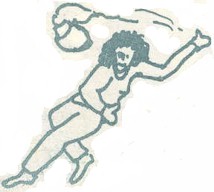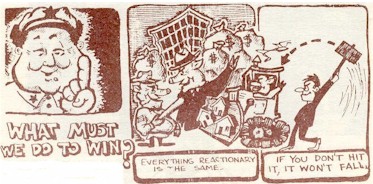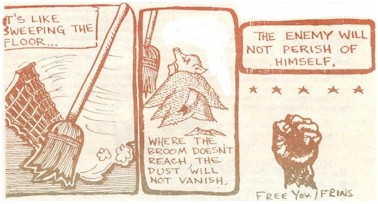INTRODUCTION
Until
recently the idea of revolution in the United States seemed unreal to most
people, even to those who believe in it. Only a few years ago, with the big
increase in civil rights action by Black people, revolutionaries were still
very scarce. Robert Williams had to leave the country to escape the lynchers –
he was persecuted not only from outside but also from inside his own movement.
Students,
first Black and then white, quickly began to take up revolutionary ideas and
proved to have great courage, but not yet a lot of strength or any real
strategy .The state and its liberal guardians could still count on frustrating
revolutionary hopes with a few promises and reforms backed up with repression
and heavy threats; the history of the old left was expected to repeat itself
endlessly.
It has not turned out that way.
Already revolution touches our lives at every turn. Black people have dared to
create an openly revolutionary liberation movement. The defeats imposed on the
“most powerful empire in history" by the despised Chinese, Korean, Vietnamese,
and Cuban peoples have made more people realize that it can be done by us too.
Pushed by Black militancy, white students and kids began to leap beyond peace
and civil rights protest to create an anti-war movement that was clearly
anti-imperialist. We began to be conscious that to win ourselves we have to
fight racism and get right into the age of revolutionary war along with the
Blacks, Vietnamese, and Cubans. Young people began to fortify themselves to
hold out in a long fight by generating a rebellious life style and culture.
The article reproduced here was
written and first circulated as these changes began to take shape and gain
strength (late 1967, early 1968). It attempts to describe these changes in
terms of the interaction between fundamental world developments and conditions
in the U.S., and in this way to work out a strategy that will win.
The basic idea is that the
internationalist strategy of supporting, joining, and spreading wars of
liberation of the oppressed peoples in order to defeat U.S. imperialism
applies to the home front not only in terms of Black and Brown rebellion, but
also, though in a different way, it necessarily determines the strategy of
white revolutionaries of the oppressor country. This is not just a generality;
it has to be carried out concretely in every moment of revolutionary struggle.
The material
on national liberation contained in Part VI is somewhat dated – it deals with
PL and Trotskyist and "Debrayist" positions. At present the issues remain, but
in somewhat altered form. Now one would have to write also in terms of
identical anti-national anti-international positions as given in Huey Newton's
verbal abolition of nations in the name of "inter-communalism."
The "Object" was intended to help pull
together the consciousness of the most revolutionary white youth activists.
The first major test of a new level of internationalist consciousness and
politics came in the battle in which Students for a Democratic Society, with a
lot of help from Blacks and Chicanos (Black Panthers, Brown Berets, Young
Lords), rebuffed the anti-Black anti-Vietnamese policies of Progressive Labor
(June 1969). The fight with PL was followed by one mostly between Weatherman
and RYM II (which remained in SDS for a short time) and with part of the Bay
Area Revolutionary Union (West Coast, mainly), both of whom promoted
essentially the same politics as PL.
The last paragraph of Part VII was
written before these differences were sharply defined and has been edited to
avoid its being misapplied to disputes to which it was not addressed.
In
1969-70, battles had to be fought against elitist-adventurist ideas similar to
those of Debray which are criticized in this article. However, recently there
is, in reaction to elitism, a revival of the chaotic ideas of "participatory
democracy" and "non-ideological " activism which first became popular in
opposition to old left stagnation and bureaucracy. This is not dealt with at
length in the "Object," but the role and function of army and party indicated
here clearly requires an adequate structure and organization to guarantee
effective action. And that in turn demands collective ways of organizing and
policy making as the only corrective or antidote to bureaucracy and commandism
that always creep into structures and networks and mechanical disciplines.
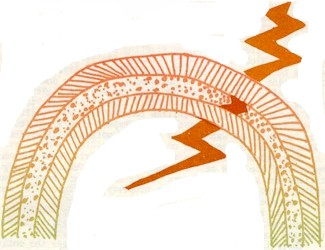
Re-publication of the article also
seems timely as a partial response to some present tendencies to react to
increasing reaction by either fatalistic death-tripping or escapist, ego-centered
life-tripping. (This text slightly edited; the content remains the same.)
Since this
introduction was written the book Weatherman, edited by Harold Jacobs,
has been published by Ramparts. The contents include one paper
entitled "Everyone Talks About the Weather …" (pages 440-47) which contains
unacknowledged direct quotations and paraphrases taken from “The Object Is To
Win.” It is possible that the editor was unaware of the existence of the
source document as only four or five hundred mimeographed copies were prepared
by and circulated among the Weathermen. That edition of the “Object” was also
reproduced by the State of Illinois and recently by the Internal Security
Committee of the U.S. Senate.
This background document and its
circulation is one of the few direct expressions of inner struggle within
Weatherman between those supporting concepts advocated in the “Object” and the
more spectacular partisans of various anarchist, “Debrayist,” and purely
militarist lines of thought. Neglect of and failure to comprehend the inner
dynamics of SDS, PL-WSA, RYM, RYM II, and Weatherman is a serious failing
common to all those who have attempted to define the recent history of the
"New Left". The Jacobs book is so far the most comprehensive, but it fails in
this particular also.
I. SOME DEFINITIONS
Given below are several words and
expressions often used in the debate on strategy and tactics of resistance in
the U.S. There is no attempt to sort out everything which will eventually need
to be clarified – only so much as is necessary for a beginning.
GUERRILLA
WARFARE: This is the special kind of war generated by oppressed and poorly
armed people to overcome the initial advantage of better weapons and
organization at the disposal of their enemies. It may be waged against foreign
or domestic foes, or both at once. It utilizes a strategy of building from
small and weak forces to many fighters and mighty strength. It is essentially
a political and revolutionary form of war (people's war) and cannot win or
sustain itself other than through massive popular support.
Thus the
guerrillas start on the defensive, win equality, and go over to the offensive.
While starting strategically on the defensive, this is not a passive defense.
Tactically it takes the offensive and chooses to fight only when it can win by
concentrating superior forces at the point of action. It punishes and whittles
down the enemy. Its foremost aim is to destroy the enemy capacity to fight. It
avoids the battles which it will lose. To this extent it seizes the initiative
even while on the defense. Guerrillas cannot start with positional war, or
even mobile war. Later on they will expand this stage, toward the end using
conventional war perhaps combined with general strikes, widespread sabotage,
and insurrection.
Guerrillas must choose targets
carefully. These must meet with the approval of the mass of the people as
fitting and just. A guerrilla army utilizes the supplies and arms of the
enemy, but since it depends upon popular support, it respects the property,
the interests, and the lives of the people.
So far in all this there is nothing
which in theory would rule out the application of this pattern to a modern
industrial nation, for all its urbanized population and great metropolitan
centers.
There is one major consideration which
changes the entire problem. This is the guerrilla strategy of building the
armed forces and their bases first in the countryside, later invading and
capturing the cities. Historically guerrilla warfare is peasant war and
national war. This is so from the time of the French and Indian War in North
America, the U.S. revolutionary war, the Resistance of Spain to Napoleon I –
right up to Vietnam.
This has so patterned the strategy and
especially the tactics of guerrilla warfare that we prefer to use an entirely
new and distinct term for a protracted war of resistance and liberation when
applied to a country such as we are familiar with in the U.S. The experience
of guerrilla war should be utilized, but emphasis will be on the differences
in applications. The reason is that the identity has been overdone and
romanticized. This is misleading and very dangerous.
Until a better name turns up we will
describe the form of a popular war against an aggressive semi-fascist type
regime at home as close warfare.
CLOSE WARFARE: This use of the word
close has many aspects, but the one to be underscored in the beginning stages
is that combat teams are born in the very heart of the strongholds of the
enemy. From the first, fighters are stationed on the right and the left,
before and behind, above and below the enemy. He is encircled and enveloped at
all times. His most prized and valuable and indispensable possessions and
structures are hostage to his potential foe.
The home
front is honeycombed and crowded with the resistance recruitment pool; the
enemy cannot smash the people's forces without fatally breaching his own
defenses. The fighter does not make long marches, he makes deep penetrations.
DEMONSTRATION: The mass demonstration
is exactly what it says it is – a show of strength. It is thus directly
political in purpose – it aims at education of masses and leaders through a
limited form of action. It puts pressure on the state power, makes preliminary
test of the readiness of the people's forces and those of the enemy. A
demonstration which goes over to direct confrontation and challenge to open
battle at an early stage invites conventional warfare prematurely, and at a
disadvantage. This is to court disaster.
It is wrong
to reject demonstrations as some do, on grounds they do not change policy or
overthrow the system. This is not their immediate purpose. A demonstration may
also be too passive in form, when people begin to feel the need for action.
Active demonstrations are one form of resistance. Use of hit and run tactics
in coordination with demonstrations tends to overcome and correct wrong ideas
about what they are.
RESISTANCE: Resistance is a stage at
which people begin to fight but are still on the strategic defensive. For a
long time mass action, and political protest, strikes, demonstrations, etc.,
predominate. The use of direct action, sabotage, etc., and combat teams are
still weak, relatively. But even from the very beginning combat, one or
another form of action is decisive, and everything is based on developing this
form until it becomes the main form of struggle; the growth of the combat
forces is the essence of resistance, but it can only grow in the midst of
massive resistance in all forms.

SABOTAGE: From sabot, a wooden shoe;
workers wearing wooden shoes used to chuck them into the works to screw things
up.
It is to be hoped that these
preliminary explanations will contribute to sharper analysis and help to reach
workable conclusions. Further terms will be explained as needed in discussing
problems.
It is simply assumed without
elaboration that this discussion takes place at first among people who already
want to abolish the system now prevailing, which is based on exploitation of
nation, class, sex and race.
It is assumed
that a system which imposes its will at home and abroad chiefly by police and
military force will be destroyed in the same manner. It is assumed that any
successful revolutionary war to abolish this system must have popular backing
and will be a long process.
It is assumed
that when the old system is defeated and abolished, the people will create a
collective social system, that is, socialism.
Debate about
the nature of socialism, democracy, dictatorship, structure, leadership, and
so on will follow later. Also deferred is the argument as to whether the
combat forces can also serve as the revolutionary political vanguard as argued
by Regis Debray – or whether the revolutionary political party as such is
indispensable as indicated in the practice And theory of Marxist-Leninists
such as Mao Tse-Tung.
These questions will not be avoided.
They will be taken up after describing our views on strategy and tactics.
II. STRATEGY IS BUILDING A
PLAN THAT WILL WIN
Strategy
is long range planning. When methods, techniques, or maneuvers are planned and
carried out as a smaller part of the strategic plan, this is tactical planning
and action.
A strategic
action or campaign is that which decides the outcome of the entire war.
Strategy
starts with understanding the strengths and weaknesses of the enemy. Strength
because it must be destroyed and surpassed. Weakness because this is used to
sap the enemy strength and build that of the opposing force.
Strategy
is rounded out by knowing one’s own strengths and weaknesses. A strategic plan
is complete when we know how to destroy enemy strength and build ours to the
point where his state power can be defeated and destroyed. Taking state power
is the strategic goal of a home front liberation movement. (Who takes state
power and the forms of revolutionary power are beyond the scope of this paper
and call for much further study and analysis. – Ed. note for third edition.)
Consider the
military strength of a modern state. The strength of an imperialist power lies
in its large professional armed forces possessing sophisticated weaponry and
organization.
Such a state is armed to the teeth
with air power, sea power, mechanized forces, transport, modern
communications, atomic weapons.
Weaponry and logistic support: this is
the entire inventory of the military strong points of the enemy at the
strategic level.
All of the
other seeming strong points prove upon close examination to really be weak
points.
So it is with the power structure
advantage in training and command experience. This is offset by the
orientation on conventional war and the state’s inability to fight like a
revolutionary. The Vietnamese state that the U.S. troops have excellent arms
but do not fight well.
Another liability is possession of
numerous bases all over the globe. The immediate usefulness of these bases is
far outweighed by the vulnerability of extended supply and communications and
by being immersed and encircled by a revolutionary sea of people.
The military and supporting apparatus
of an imperial power commands the services of an enormous number of people.
This strength also contains the seeds of its own destruction. These
mercenaries are pitted against an enormously larger number of people who are
exploited by the system, and its very servants have reason to turn against it.
Most of these
weaknesses have political roots – here we are concerned with the military
consequences. We also point out that these are strategic weaknesses; at the
moment the enemy still confronts its adversaries in great strength.
Nevertheless, the Vietnam war has exposed the strategic weaknesses below the
surface. This is the main service to the people of the U.S. by the Vietnamese.
It is not merely that the U.S. state has displayed its brutality in
Vietnam – more it has proved to be fatally weak, for all its terrible weapons.
The world wide expansion of U.S. military power has laid it open to attack
from all directions.
|
 |
But the opposite aspect of the
strategic disposition of U.S. military power is its centralization, and this
too is a fatal weakness. The basic resources of supply, manpower, and command
lie in the U.S. itself. Within the generally centralized Octopus of power,
there are subordinate but essential centers. Everything has to be coordinated,
centrally directed. It is no individual whim which causes LBJ to personally
select bombing targets. This is a logical outcome of the U.S. table of
organization.
This
centralized apparatus is not only strategically a fatal weakness; it is
immediately and tactically exposed.
|
 |
"The world is round. Only
one third of its
people are asleep at anyone time. The other two thirds are
awake and causing mischief somewhere."
--Dean Rusk |
The people
possess none of this terrible machinery of war. But the machinery and weapons
of the power structure itself are always close to hand.
Contrary to the strategic condition of
the enemy which is momentarily strong but potentially weak, the opposing
revolutionary forces are momentarily weak but potentially immeasurably strong.
The political command of force and
means of violence, institutions, prisons, TV, news media, schools, church
dignitaries, election and party machinery, etc., gives the power structure
enormous political strength. Again, this strength is material, institutional,
and rests on sand. The entire works has not been able to keep the people from
turning against the aggression in Vietnam or to keep the Black people from
rebellion.
The political
strength of the people lies in their numbers, their common interests and
unity, their organization of massive resistance and their own combat forces.
As yet weakly mobilized, this strength is coming into action and growing. It
will be decisive in the long run.
A power
structure under siege abroad and at home is compelled to rely more and more on
military force and violence to save itself. Victory therefore depends upon
generating superior force and better strategy.
To do so
people must organize massive resistance and produce a highly effective and
organized military arm. Not a band of heroes, but combat teams spearheading a
massive resistance, is needed.
What is
the disposition of forces? Strike at the strategic weakness of the enemy – his
dependence on materiel, his over-centralization and his un-eager manpower. The
popular forces will not battle in the mountains or the fringes or suburbs, but
at the nerve centers.
This has to be coordinated by a
strategic plan and command.
Contrary to the situation in guerrilla
war in a relatively decentralized country, the vitals of the enemy are within
reach almost at once. (In fact fighters are tempted to try big heroic feats
beyond their strength and readiness.) Until the underground forces build up,
the fighters depend more on secrecy and precision than on flight.
Politically, a decisive part of
strategy is the selection of targets and types of action. This choice must
express the political aims of the mass movement and its stage of development.
Anything else will isolate the actionists.
Correct targets at this point are the
specialized systems which maintain the Vietnam war and the equally specialized
systems and force used to oppress Black people. These are prime objects of
mass hatred and are indispensable to the present operations of the system.
To summarize some strategic
guides:
-
Having no
army, the people are weak, but this can gradually be built up.
-
The enemy has a strong army, but
his strength is hollow; the hotter the fight, the more his strength melts.
-
Combat teams convert enemy
resources to their own use.
-
We utilize our position within the
centralized and sophisticated machinery of power to disrupt it, paralyze it
and finally smash it.
-
The people of oppressed nations
turn liberators and chop off the grasping arms of the monster; we sap and
mine its vitals. The more armed state power strikes out, the more enemies it
creates. The more we give blow for blow, the more friends and supporters we
have.
-
Close warfare has even some
strategic advantages over typical guerrilla war. As stated, it is an
advantage to be in the center and actually permeate the entire structure.

It is an
advantage to already have fighting allies on a dozen fronts.
It is an
exceptional advantage to have in the U.S. a Black nation which spearheads the
resistance and which is already in defensive combat (not yet in close war) and
which is in a position to give strategic blows to the military and political
strength of the system and which moreover has direct political ties with the
fighters abroad.
These advantages are strategic and
permanent and growing. The disadvantage of having the most vicious enemy, all
the materiel and prestige bribery of people, brain-washing, the officer corps
of the enemy in command of workers' organizations – all of these are transient
and will give way after many hard blows. Finally, the mercenaries are blood of
our blood, not alien but alienated. This makes it harder to strike first
blows, but in the end they disintegrate.
This is what the U.S. is really like –
this is where it's at.
III. THE POLITICS OF
VICTORY
It is in the
field of political action, theory, ideology, that some of the most prominent
representatives of the "old left" attempt to lay the dead hand of the past as
a blanket to smother and stifle the new movements. Whether this represents
outright support to the system or “merely" captivity to liberalism or towering
sectarian egotism does not make much difference in results.
What is important is to examine our
history carefully to find the causes of failure and the promise of success. To
slavishly follow the past is futile. To reject it in toto is to end up in
feverish but mindless and impotent action for the sake of action. It must be
sorted out. This paper will pose for discussion some of the politics we think
most relevant if we seriously mean to win.
The first
proposition is that big changes in the world mean big changes for us too. We
cannot simply return to where it was twenty or thirty years ago. Young persons
understand this almost by nature. Many others do not. They do not see the new
movements as reflecting something genuinely new, but only as the same old
"middle class" or petty bourgeois anarchism and undiscipline.
So, is the
new left a diversion, a false turn to be corrected, or is it creating
something important and even wonderful?
A
revolutionary must place himself on the side of struggle, on the side of the
new and growing, not with the old and decaying. This is our axiom, absolute
commitment to struggle. It is true that the new movements have reduced
much of the old concepts and the old organizations to one big mess. But in the
midst of chaos, some great things are beginning.
The advance is real: this is the main
thing. Dangers exist, and foolishness, but this can be licked. We can twist
and turn and even use brakes a little, to take sharp corners, but never to
reject or change the general direction, which is sound and creative.
What is
this conviction based upon? Fact number one is that imperialism headed by the
U.S.A. has mustered its maximum force in the world and it is not enough
for it to win, let alone maintain, world domination. The imperialists may yet
mobilize a few more guns and a few more tricks; still their opponents,
revolutionary people, nations, and classes, will mobilize even more.
Vietnam is
the proof. People will wage such wars of liberation so long as the invader
does not give up. As for the system, it may be forced to accept defeat at one
point or another and retreat a bit for a time, but it will hang on wherever it
can so long as it exists.
It is a fight
to the finish.
In a
world-wide fight to the finish, could the U.S. people – that is, the Blacks,
young people, intellectuals, workers – go on for a long time at business as
usual until such time as our counterparts abroad do the job for us?
Shamefully,
some people speculate on this. But it is a losing gamble. The proof is in. The
U.S. rulers exported aggressive war and death to guarantee profitable export
of capital. The chickens are coming back to roost: defeat abroad, resistance
and rebellion at home.
Resistance
and rebellion are met with bullets, gas: and brutality, but also still with
pay-off and co-opting.
But the cost
of empire ($30 billion for one year in Vietnam and heading rapidly for what?
Say $300 billion?) is going up so fast that pay-off will became more and more
restricted and the pay-up more and more universal. Further, not only
rebellious victims abroad will refuse to provide the pay-off loot, but so will
Blacks, Mexican-Americans, women, young people, and others short-changed at
home.
The rest
of the world is about to dispense with the luxury of supporting a gang of
useless parasites, even Yankee ones. The sharing of the rake-off with a
minority of favored workers is a sometime thing; it will not long continue.
The course
of the Black Power movement plainly indicates that if the super-exploitation
of Black men and women does not end, then the gravy train for quite a few
whites is going to get de-railed.
For instance, the present "prosperity"
level of as much as $17,000 per year for some workers in west coast shipping
(in exchange for fabulous and much greater profits for the ship owners)
depends entirely on the boom due to the Vietnam war and a Bridges deal to
share in it (the famous modernization and mechanization contract). Bridges
calls it blood money. But he demands all he can get for his jurisdiction and
considers himself an opponent of the war because he made a speech.
The Vietnamese and the U.S. poor pay
the bill. Either the Vietnam war and this payoff are smashed, or the war and
the bill will get so big and costly that not only luxury but bare existence
will be snatched away from more than 90% of the working people.
The military and political defeat of
the U.S. in Vietnam is still largely hidden from the view of the people at
home. But it is huge and it is disastrous for the U.S. rulers, who are well
aware of this. But this defeat can only benefit the people, for it will help
them to get rid of imperialism, which is causing all their big troubles.
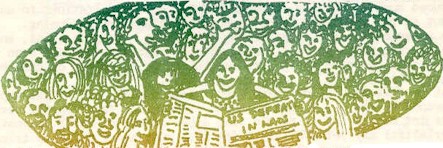
A so-called “victory” in Vietnam, if
the impossible should happen, would be the greatest misfortune for the U.S.
people. Such a "victory", like Hitler's early "success", would result in wild
plunges and even more catastrophic defeat.
In this kind of a world, and with this
kind of a national role, can the mass of people, who are basically workers in
our country, hold back from the fight against imperialism and for their own
liberation?
Some old fighters pin their hopes on
reviving the economic battles of the 1930s and 1940s.
But is this the main revolutionary
task today – long and patient preparation and economic struggle as usual to
win support shop by shop, local by local, union by union, until millions and
tens of millions are at last ready to perhaps do something political?
Or do we
take the world into account also? The world majority has launched
already the protracted war of liberation which will finish off U.S.
imperialism (sooner with our help). In this real world do not U.S.
revolutionaries also have the duty to enlist for the duration?
Man by man,
woman by woman, act by act, we build our own front of liberation. Events and
the ruling class will create millions of supporters and hundreds of thousands
of recruits, provided only that we have correct political ideas and learn well
how to fight and how to win.
We should not reject economic struggle
by workers, especially by the most exploited. But every struggle today is a
skirmish in the world wide war with U.S. imperialism and we are partisans
against the system. We will support and further every economic struggle that
promises to hurt and impede imperialism in any way; we will not, for the same
reason, honor any contracts, awards, bribes, pay-offs, or alleged "duty" to
refrain from any and all acts to bring to a dead stop all imperialist war acts
or war connected production, transport, communications, or research.
We are not sectarians who condemn
everyone who does not at once recognize this duty and commitment. (Most of the
sects, in fact, make no such commitment, other than in words; they only pose.)
Rather, we value every act and deed which adds to the total resistance. We
oppose everything which in practice means withdrawal from, or sabotage of,
struggle.
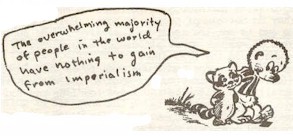
IV. WE AND THE GUN
“It can be
said with certainty that the complete collapse of colonialism, imperialism,
and all systems of exploitation, and the complete emancipation of all the
oppressed peoples and nations of the world are not far off." (From statement
in support of the Afro-American struggle against violent repression, by Mao
Tse-Tung, ApriI 16, 1968.)
We are nearing a climax as world-wide
rebellion tears away at encircled imperialism.
In such
times of great social upheaval the outcome often depends upon timely action to
remove a particular road-block which is holding up further advance and growth
of revolutionary power.
When the
magnificent struggles of oppressed people abroad and Blacks at home are
reinforced by enough of the rest of us prepared to do likewise, the end of
U.S. imperialism will rapidly follow.
This is the
one great cause for all radicals and revolutionaries who live and organize
among the white majority of the U.S. population. This is both our special job
and our entire justification.
The opening of a combat front by us
"inside the monster" will release an infinitude of revolutionary energy. We
are the missing gut-fighters. It is time to close the gap and make the
link-up.
The warm welcome already extended to
our modest struggles should be taken by us more as a challenge to future
action than as a tribute to pat performance.
For it is
we who owe an urgent and compelling debt of gratitude to peoples like the
Koreans, the Chinese, the Vietnamese, the Cubans, and the Black people. Their
victories have the unique dual nature of being also severe defeats for those
who are simultaneously this world’s cops and oppressors and our own particular
curse – the U.S. imperialists. It has now been convincingly demonstrated that
people can fight back and win.
We do not enter the scene as heroic
rescuers of small peoples. Our fight will be of some help to them. But they
have already done far more for us than we shall ever repay – they have
disclosed to us both the monstrous nature and the fatal vulnerability of the
U.S. empire.
Now we can begin to understand and
share their purging hatred and contempt for white U.S. arrogance and genocide.
We can begin to be aware of the shame of tolerating slave-makers in our midst.
Peoples
fighting today are but an advance guard for massive armies rapidly taking
shape. The cumulative force and collective violence of a vast majority of
mankind will take by storm the puny strongholds of the colonizers, old and
new. Even now the handful of imperialists and their undermanned and uneager
legions are being smashed and destroyed in battle These defeats inevitably
will bring to a head existing elements of political, social, and economic
crisis with explosive violence.
But only we
ourselves can resolve this crisis. Only we can change our own society and
birth our part of a new world. If we do not rise up to help destroy the enemy
and save ourselves from complicity in all his works – how then shall we be
able to create a new life?
The ruling classes in the U.S. have
taken up the gun against people everywhere. They do not exempt people at home.
Political power from the barrel of a gun not the issue exclusively for the
oppressed nations and peoples of various other places and colors. It is a
reality to be faced by whites in the U.S. also.
This is a
truth first for those who wish to be anti-imperialist and revolutionary – but
it is rapidly coming home to the whole nation.
U.S. imperialism has lived by the
sword too long and too completely to now cop a plea of non-violence.
When the urgent need is to open new
fronts of combat in order to win, all politics and movements must be directed
to that purpose – all else is subordinate until the decision is taken and the
beginning made.
He
who refuses the gun is no revolutionary. He who does not strive does not
strive for mastery of arms and the art of combat but gossips about revolution
far removed from his own person, does only ham.
Our great
need at this moment is to create a sound military line and strategy, tactics,
and combat organization appropriate to the U.S. "Learn to fight by fighting";
and in so doing create what the people lack – their own army and party.
Once this course is adopted, much new
thinking, planning, and far more effective local and national organization and
discipline become absolutely necessary. This demands leadership of a more
serious and qualified sort than that which sufficed in preliminary stages.
Serious analysis and theory must be
applied to our own experience. Neither chatter about Marxism-Leninism in
general in the remote future, nor romantic games or tournaments of dogma will
serve. We must now employ political science to solve precisely our own
pressing problems on our own special sector of world reality.

V. IT IS TIME TO REBEL
When it is
time to rebel a good example is worth ten thousand words. Nevertheless, it is
necessary to give the reasons which compel this ultimate and irrevocable
action.
The most determined Black
revolutionaries are taking up arms as the only way to win. No other section of
the left has yet done this. These two facts express a definite difference
between Black activists and leaders and most of the white left.
This difference is no new discovery.
It is not hard to explain by differences in life experiences and the
"realistic" prospects of Blacks and whites. Such facts are no longer denied by
spokesmen for those who rule.
But these facts do not bring everyone
to the same conclusions. Some Blacks (Leroy Jones, Robert Williams) have held
that nothing good will come from any class movement of whites. At another
extreme are whites who hold that Black liberation is a minority problem which
is subordinate to white working class revolution and therefore will be
resolved by some sort of integration (old C.P. and S.W.P., etc.). This latter
view, expressing an arrogant and patronizing outlook, is rapidly becoming
entirely absurd. For the Black struggle is now but one part of a world-wide
majority movement against U.S. domination. These anti-imperialist forces have
shown themselves to be quite able to smash up U.S. armed force for all its
guns and its pay-offs.
The underlying weaknesses and hidden
crisis of U.S. imperialism were first openly revealed by political and
military defeats in China (we "lost" China – remember?) followed by Korea,
Cuba, Vietnam.
Recent years
have added acute crises in affairs at home – Black rebellions, resort to
political assassinations, financial panic leading into economic breakdowns
caused by ballooning costs of trying to hang on to an inflated empire,
resistance to the draft and also an entire generation of young people
threatens to get beyond the reach of establishment controls, allies waver and
desert, LBJ puts on a phony self-immolation political circus, and more.
This is no ordinary rash of minor
problems – U.S. imperial power is past its short and rapid rise and is on the
down escalator. The outlook is for further decline.
There are no facts to support the
notion of an early recovery and a lengthy convalescence through "liberal"
doctoring. New outbreaks of crises, bigger defeats, more repression and
aggressions lie ahead; gale warnings dominate the realistic forecast.
McCarthy,
Kennedy, Rockefeller; all together they can do no more than try to polish up
standard procedures which are failing now. The old mix of fair promises and
compulsive violence is no longer enough to save the system. As encircled
imperialism feels the noose tighten, its command centers are compelled to
resort to still more frantic deeds. Escalation is a built-in syndrome which
persists to the end.
Crisis,
revolutionary war, imperial defeats and spasms are the terminal symptoms of
the system. The seemingly permanent durability of middle-class business and
politics as usual is the unreal and illusory. It is a mansion with a bold
front, but gutted by inner fire ready to collapse when the storm hits in full
strength.
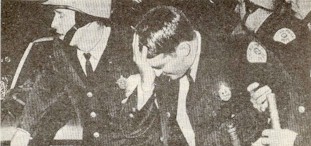
Writers like Carl Oglesby
(Guardian series, April 1968) who predict a period of liberal relatively non-violent
policy for U.S. imperialism are basing themselves upon evidence from campaign
oratory and public relations blurbs. This fails to explain how talk can save
an empire based on force when it is confronted by superior force.
Neither China, nor Vietnam, nor
revolutionary Blacks are going to fade away. Anti-imperialist war is
increasing in momentum. If U.S. power should retreat a little here or there
(so far it is only talk) this will only ease the pressure for half a moment.
Activists here must base policy and
action upon solid prospects of victory. (The storm has already reached Europe;
the idea of winning is no longer in the category of dreams.) Therefore, we go
over from defensive tactics to the strategy of an offensive. We should not be
diverted by the false show of strength of imperialism as it rallies the
frenzied energy of desperation.
Resistance will only win by joining up
in the war which already is under way and doing quite well. The basic choice
for the U.S. activist is essentially simple – if you wish to be part of the
fight to the finish, then hit the monster where it will do the most damage.
And who is in a better position to do this?
But to carry this choice through to
the very end is not simple or easy.
VI. NEW TRICKS AND OLD
TRICKS SLICKED UP
|
"The surest way of discrediting and damaging a new
political idea is to reduce it to absurdity on the pretext of defending it."
--V.I. Lenin
|
It is no longer very
effective for reformists to peddle peaceful everything, through competition to
utopia; socialism by amending the U.S. Constitution, victory through the
ballot, etc. Communist Party USA notables who just a few years back pleaded
their innocence of any revolutionary deed or thought and their complete
loyalty to non-violence at the Smith Act trials now come on slyly dropping
hints about violence to come if the powers that be do not accept their reforms
and better reward their talents and services.
But this is a side
show, mostly to provide a haven for straying liberals. More useful to the
ruling classes are more artful and up-to-date maneuvers.
Right now there is
much talk about recent events including the electoral circus. A main variation
goes like this:
First there is a big
fuss about the danger of co-opting of the left. The thing is that Kennedy,
McCarthy, or Rockefeller will really do it –
that is, deliver on their promises – and then we, the movement, will be
high and dry in a liberal imperialism that works. The alleged remedy for this
sleeping sickness is to give up all thought of action against the Vietnam war
or the draft (it's all over, fellows) and go in big for anti-imperialist and
anti-racist talk. So we "fight" Kennedy by believing his fairy tales and
giving up action. In this version the rifles have all been stacked and
imperialism runs on hot air.
An alternate version
is that Kennedy and the rest do have teeth. They will do as Johnson did – but
here the thing is, you see, all the stupid people are taken in –
everyone has sold out or is about to. We the leaders of such and such a sect
are the only great and pure bearers of the revolutionary flame and the workers
who surely would have followed us are being sold wholesale by everyone from
George Meany to Ho Chi Minh. (If this seems like the wildest invention, read
PL magazine or any Spartacist sheet.
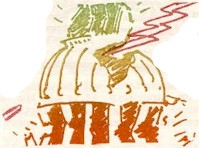
Since the workers are
still in tow of Meany and Reuther and have yet to discover the great
revolutionaries patiently or impatiently waiting to lead them –
obviously it is not yet time to pull the pin and take over the works. Guns are
nothing but romantic adventurism until the workers are revolutionized by us by
the millions.
Some of these word
spinners also star at the popular left sport of demolishing the "theories" of
Regis Debray. (Revolution in the Revolution.) This is surely the
easiest known form of intellectual exercise. But before a closer look at this
criticism, what can be said for his promoters? The kindest thing to say is
that some Debray enthusiasts are really concerned about revolutionary problems
of central and South America and whatever can be learned from this and from
Cuba. But for the most part, they do not in the least examine the definitions
or solutions, or even compare the Debray version of Cuban history with reality
or even Debray with Debray. (In addition to two earlier articles published in
England, Revolution in the Revolution contains un-reconciled opposite
major conclusions.)
One such hobby is the
Latin version of bonapartism. Caudilloism and Junta rule led by the military
hero who settles everything. Another is extending the rejection of
non-revolutionary Communist parties to a rejection of the Marxist-Leninist
concept of the Party in general. This in turn is a military version of anarcho-syndicalism
which is a Latin rendering of themes also basic to the Industrial Workers of
the World and the Socialist Labor Party of the U.S. (DeLeonism).
Still another device
is using undoubted special problems and Latin American conditions to distort
and negate some important Asian experience and lessons – not
only Chinese, but also Vietnamese.
One thing which
Debray wipes out is the most important national aspect of anti-imperialism and
the stages of social revolution. In spite of his heated polemic against some
Trotsky-oriented groups, Debray promoted this Latin version of Trotsky's
permanent revolution theories.
All these
propositions, although not original or much altered, are certainly very handy
springboards for anyone who may want to revive all the old system put-downs of
Marx, Lenin and the classics, in a borrowed new left mini-skirt. In the Latin
form, it is all the easier to add Mao and Ho and Giap to the target list along
with distortions of Fidel and Che. This last is done carefully because of
their great popularity in this country.
When these
"discoveries" of Debray are set alongside their venerable prototypes not only
the shortness but also the thinness of cover shows up.
Now come the critics
on the left. What a godsend Debray is to the old professional sectarian who
needs cover not so much for nakedness as for impotence. What a picnic he has
with all this mish-mash. But there is something behind the fire-storm of
words.
For example in a
recent PL magazine, Jake Rosen reviews Debray only for the purpose of flogging
Cuba with the same lash he uses on the Soviet and U.S. governments. Just three
or four years ago, Che and Fidel were his revolutionary heroes; today they are
out – along with the rest of PL's list of
sell-outs. (Koreans, Vietnamese, SNCC, the Black Panther Party, the League of
Revolutionary Black Workers; everyone is ex-communicated but PL and possibly
Mao.)
We do not think it
necessary or fruitful to split hairs about the relative purity of leaderships
fighting imperialism. It is true that there are correct and incorrect theory
and policy and action lines internationally as well as domestically. There are
also mixtures of right and wrong and stages of development in all countries
just as in the U.S. We can and should inform ourselves and discuss and learn
about all this.
But what are the
qualifications of these white U.S. pundits who presume to pass moral judgment
on all those who are actually fighting because they are not pure doctrinaire
angels? Do we not have the right to ask if any of these have yet taken a
single first preliminary step to organize a single act of revolutionary war on
their own highly strategic home front?
We think that
judgments made in this fashion exactly ape the style and arrogance of the U.S.
rulers who habitually order everyone about and trample on the rights of other
nations to determine their own affairs. Self-determination has to include the
right to learn by trial and error. In the U.S. itself this right is highly
valued and much practiced.
Another objection is
that it is certainly very useful to the present administration to have a story
go around that the leadership of all its enemies who dare to fight are
sell-outs. In the old left this sort of thing was called scabbery and
strike-breaking. It still is.
It is very cheap and
easy to hail Mao or even Lenin as a cover for one's dirty work – it
does not seem to upset Mao, but some who admire the Chinese revolution may
thereby swallow a certain amount of unhealthy filth.
So far the critics
completely ignore the main question for us. This is, what are the underlying
reasons why Debray has had so much appeal, along with Che and Fidel, to
sections of the U.S. movement, and how is he possible as a political figure.
But first a word about admirers of Che Guevara.
One serious problem
is that activists who wish to take up the gun are often romantic followers of
the ideas and life of Che transplanted to the U. S. and labeled urban
guerrilla warfare. So long as things remain at this level, it is extremely
unlikely that much progress will actually be made toward people's war.
Symbolic play is one form of preparatory education, but it remains unreal; the
realness of the assaults on the ghettoes has given things a more serious turn
among the Blacks.
Perhaps only heavy
casualties will carry white activists from tournaments to wars. But perhaps
they can learn something from others.
In any case, the
activists are in better shape than the hide-bound hawkers of medicine show
revolution. Beneath the romance, many of the activists are completely serious.
When one wants to fight and does not Know how, he will learn sooner by trying.
Those who invent a million good reasons to reject every actual battle and
campaign will never be anything but a diversion and a drag.
Much seemingly
profound class analysis of the old pundits is irrelevant. They warn that
middle class students can never bring it off, it is all petty bourgeois
anarchism, only workers can give stable revolutionary leadership, etc. But the
effect of this lament is to completely falsify revolutionary history. Working
class proletarian ideology was created out of the raw material of class
history precisely by the labors of middle class intellectuals.
If revolutionary
leaders have to be workers by occupation then these absurd “Marxists” would
cross out Marx-Engels-Lenin-Stalin-Mao.
Young people (some
are workers or from working families) right now are promoting at least two
basic working class concepts: one, to overthrow capitalism; two, to do it
through combat. They use new labels, but this is the content. Which of their
critics is doing anything so useful?
If a little bit of
Marxism comes from the German professor, the small capitalist, the Russian
lawyer, the Georgian divinity student, or the Chinese student-peasant, but
somewhat re-shaped by U.S. young people, students, and intellectuals, what is
so tragic in that? They are more amateur and less profound, certainly, but
they are here and in contact with events and they can learn.
So it is chaos.
Better revolutionary ferment than well-regulated repose. There will be no
successful revolution without millions of workers – also true. But no one has yet
revolutionized a single worker by trying to browbeat the young.
VII. CONFRONTING
THE REAL CHOICE
In the last section
we objected to the use of the names and the works of Marxist-Leninist classic
authority to cover all sorts of petty schemes. To avoid these traps, it is not
enough to ridicule and protest – we must produce analysis and basic
conclusions as to the situation of the U.S. in the world of today.
Since Lenin and 1917,
leadership of the revolution by a unitary Communist Party has been doctrine
rarely challenged until recently. After the revolution, this party also leads
the workers on to build socialism (dictatorship of the proletariat). The Party
remains as the indispensable tool for the job.
Lenin also warned
that the old system is pervasive, it creeps in through every crack, trying for
a comeback. What better formula for restoration could be found than a cold war
on the outside combined with an inside job on this indispensable party?
After the victory of
World War II against fascist Germany, Hungary, Italy, and Japan, most
Communist parties fell into peaceful dreams –
peaceful transition, peaceful co-existence, victory by the ballot,
non-violence, all capped by restoration of a profit system in the Soviet
Union.
A few parties, China
notably, and others mostly in Asia, held to the original Leninist ideas
expanded by their own concepts of the anti-colonial revolution much influenced
by Chinese experience and Mao Tse-Tung. This divergence was later generalized
by Mao in terms of the Cultural Revolution.
Significant in this
for us and for Latin America is that in the Western Hemisphere most of the old
CPs degraded into mere parties of left opposition within the system without
having given birth to a solid revolutionary core to carry on. This situation
tended to discredit not only the old CPs but also the entire Marxist-Leninist
party conception when the new left forces began to develop.
Strong
anarcho-syndicalist and military traditions among Latins and the IWW and the
DeLeonist ideas in the U.S. reinforced this rejection. (Comments on Latin
America are made here because this is involved in the Debray controversy – we are not trying to present solutions for
these problems.)
The result is that
nothing in the world was at once so astonishing to the old left and yet
entirely more natural than the fact that the first stages of the Cuban
revolution should simply adopt certain military and syndicalist forms to flow
around the studied and purposeful inaction of the old Cuban CP (PSP).
Debray fastens
precisely on this discovery and this amazement. Behold the solution to all the
hassle is just to do without a party until the old state is done in by the
guerrilla army; then there will be time enough for parties. Fidel is more
restrained. He sees a value in parties which collaborate with him, at least
for a while.
Our sectarian critics
are insulted at the outrage to their pretentiousness. Look, they write, it was
an accident – less than a thousand men –
what sort of war is that? Fidel was only a nationalist and Raul and Che hid
their Maoist textbooks and so they hood-winked the Yankee. This can never be
again. We have the only answer – back to classic purity and virginity
and wait for the masses to ripen.
Was Cuba really a
great new creation to replace all old lessons? (Debray) Was Cuba a freak of
history with nothing new? (Critics) Neither one nor the other.
There is no special
difficulty here. The needed evidence is all in the open. At the present level
of world-wide anti-imperialist war and revolution, Marxist-Leninist ideas are
more available than ever before in history, to millions in all continents.
If a reformist party
erects a dam against these ideas, they will still flow over or around it. If
there is no Marxist-Leninist party and leadership, or only tiny isolated
grouplets revolutionary only in declared intent, but not in performance or
ability, then there will be chaos and distortion and eclecticism. No group has
authority, not just because of anarchism or middle class instability, but also
because no one has earned authority by proving in action that there is both a
correct line and ability to carry it out.
If, in addition,
conditions are conducive to rebellion, then in such a set of circumstances, a
united military action group can do much toward engaging the reactionary power
structure and building up revolutionary armed forces. It is nonsense to claim
that this is better than having a strong and genuinely revolutionary party, or
that such a party will automatically grow out of the army.
Further, it is a
basic that it is the people who make the revolution, not the leaders or the
party or both together. And if Debray tends to see the guerrilla band as a
goad to stir the people to revolt whether they will or no, his critics often
use the alleged unreadiness of the masses to push off the revolution so far
into the future that it loses all practical meaning.
People do sometimes
take up arms and fight and even organize armed groups before they birth a
party. This has happened before our eyes with the Black uprisings. It is more
than three years since Harlem. Only now are the Blacks tackling the
organization of a serious party.
It can be (and often
is) argued that Blacks should have first made the party so things could go
more smoothly and with fewer mistakes. But it is a thousand times more useful
for us to discover the means out of which we will now create our own party and
army.
We can start by
demonstrating the relevance of both combat force and party to the present mass
struggles instead of offering ready made canned formula and structure out of
past generations and other times.
In urging the merit
of a revolutionary party in creating unity of policy, leadership,
organization, and discipline in combat, recent experience must be taken into
account. Revolutionary discipline and organization can be corrupted into a
bourgeois dictatorship of a privileged bureaucracy.
Revolutionary aims,
policy, and action must have the right of way over any considerations of
official privilege or status.
There is in fact some
justification for the position of many activists who do not trust the politics
and theory of any of our old communists. This distrust was a necessary
part of sweeping away much of the old rubbish. But now something new is to be
created, and new Marxist-Leninists with correct politics do not grow up
quickly and easily.
To chant "Mao is
right, the party must command the gun" in cases where there is still no party
is certainly silly. It may be worse. It may cover rejecting the gun where
there are conditions demanding its use and cases where armed struggle is a
prime necessity for party building. It is not too much to ask that people who
wish to command the gun prove their worth to command it not by quotation alone
but by performance.
Debray manages to
make the Cuban revolution seem more exclusive and elite than it was in fact.
In the U.S. there has been built up the similar myth that to resort to
purposeful violence is to insure complete divorce from mass support. This is
contrary to our own experience, not just to the dialectic of struggle. A few
years ago Blacks were always on the receiving end of violence; now they rise
up and get in some licks of their own; they have more support, not less. Labor
in its early militancy went through similar experiences.
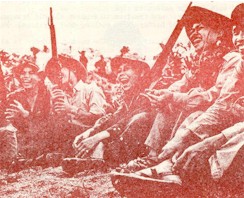
Debray sees the city
as a stronghold of reaction, co-opting, and corruption. Hence he "supports"
Mao's strategy for peasant countries of building the base in rural areas.
Debray carries the idea to the point of discounting city struggle until the
last possible moment and imparting a revolutionary quality to the mountain
air. His critics rush in to defend proletarian honor – by
denying the existence of corruption! This is contrary to Engels and Lenin as
well as to logic and fact. Since we are an industrialized urban-suburban
people we have no internal prospect of resort to rural bases in any strategic
sense. But forces abroad more than make up for this. The crisis is well
advanced, cracks open up. We are able to fight inside the citadel, because the
enemy is so much embattled overseas.
As for co-opting and
corruption, it is worse in the U.S. than anywhere else in the whole world.
Saigon not excepted. Our answer is not to flee the city but to put deeds
between us and the bribe, deeds and hatred of imperialism. The outlook is for
bribes to control fewer people with a bigger squeeze on everyone else due to
higher costs.
Debray, seconded by
Castro, discounts the national and democratic nature of the anti-imperialist
revolution and toys with ideas of a directly socialist revolution on a
hemispheric or continental scale, although not without some reservations.
None of the left
critics have risen to challenge this, although it is directly contrary to Mao,
and to Chinese and Vietnamese practice. Only old reformists, who want to
bargain with their own puppets and the Yankees, complain on this score.
Nevertheless, this is
one of the very most important matters. Examine the Vietnamese example. Here
there is a distinctly non-socialist stage of united revolutionary war against
the U.S. and its puppet in Saigon (National Liberation Front political
program).
At the same time,
there is a projection of eventual socialist aims in the demand for working out
Vietnamese re-unification. This is clearly a national, not a universalist war
of liberation and this precisely is why it does have universal impact.
In most of Asia,
Africa, and Latin America, national wars of liberation remain the main form of
anti-imperialist war. Such was the opening stage in Cuba –
Batista was a Yankee stooge. Nothing in the Cuban experience supports the
curious idea of a peasant revolution directly for socialism. Actually, this
concept is rooted in despair with the Latin capitalists.
The
national-democratic revolution is basically peasant revolution. To reject
national aims is in practice to reject rural bases. To expect peasants to
fight directly for socialism is to expect them to convert themselves into
workers by playing with labels and magic slogans. It ignores entirely their
relationship to the land.
However, when
anti-imperialist war has won political independence for the nation even with
land reform, if there is no going on to socialism, there is inevitable
reversion to neo-colonialism and reactionary police-state forms of government.
Witness Iraq, Egypt, Ghana, Algeria, Tunisia.
It is at this point
that revolutionary ideology, parties, the working class as such, meet their
first critical testing. If they are too weak and have not done their work
well, bourgeois forces collaborate with imperialism to turn the wheels
backward and reverse the revolution. In the U.S. there are a few thousand
corporate farms, a few million businessman farmers, many agricultural workers,
and many workingmen and women supporting mini-farms. And damn few peasants.
For this reason the national factor in the U.S. takes different form. Even in
the case of Black liberation, the struggle is mainly city-oriented. For our
part, one of our jobs has to be to rescue ourselves and our own people from
the consequences of forming the national base for U.S. imperialism. In the
final analysis, the white majority itself can only be free when imperial ism
has been destroyed. We start by building local and national bases against
imperialism within our own borders.
It may seem wild
right now, but as the crisis gets sharper and defeats multiply, many people
who seem quite conservative and full of love for their own enemies will desire
to make this change, even though they may not yet be fully convinced
supporters of socialism. These sharp defeats imperialism is taking are
absolutely the best antidote for egotistical "America first" and "America is
the greatest" stupidity we are always being pumped full of. This is a great
merit of the new generations. Mostly, they aren't too impressed by the old
brainwash.
This includes many
young workers, millions of whom are in the armed forces. This is a main reason
why the system brass and wheels have nightmares about their outlook when the
fight at home gets serious. They cannot be certain which way the guns will be
fired.
Millions of workers,
mainly young, but many older as well, do not have a big share in the fabled
high wages and "middle class" life which has been the life-preserver for the
system and its pet trade union bureaucrats.
When the costs of
empire rise just a bit more, many will go under along with the dollar. As
workers begin to respond to the new climate, and begin to learn that
collective bargaining and economic strikes, even when the entire nation
strikes, are not enough, revolutionary action permeates the atmosphere.
This is the alarm
bell for the liberal, the reformist, and the revised "Marxist".
New acts are hastily
polished up for the electoral circus. Kennedy et al are not worried about a
few activists as such. They are worried that revolutionary new left activities
will influence ultimately millions of people, including many strategically
placed young workers, GIs, and so on. But a few new Kennedy acts cannot save
the old game.
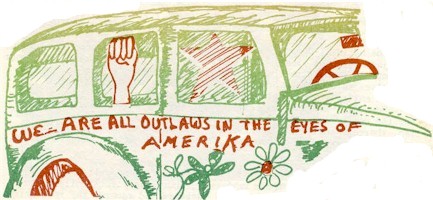
VIII. ABOUT TIMING
It is the peculiarity
of timing that it can never be conclusively settled other than in action. Only
victory proves the time well chosen.
But defeat does not
automatically condemn either strategy or timing. So long as a great crisis
persists, one attempt may fail only to be followed by another until success or
complete exhaustion of all the revolutionary forces.
A hard fought
revolutionary war which fails may actually be the final preparation needed for
the one which wins. There are times when the greatest disaster is to refuse to
fight at all.
Peoples like the
Vietnamese and Afro-Americans must fight to the end in order to survive. They
forge victory because through fighting they become incapable of living as
slaves.
What can be said for
that tiny handful of U.S. whites who pride themselves on their revolutionary
rhetoric but in practice speculate on waiting for a moment when others will
have shed enough blood so that U.S. imperialism will be easy to defeat at
little or no cost to themselves?
"But People's War in Vietnam, if it is
pursued, could destroy U.S. imperialism.
-- Challenge (Progressive Labor Party), April 1968
Surely the ultimate
arrogance of this pen stabbing could only be conceived by an adult, white,
U.S. male, and could probably not be seriously offered in any left newspaper
in any other country in the entire world.
Few people blurt out
their miserable bankruptcy in such a bald way, while openly condemning those
who are actually fighting. Still there are some who will cheer on fighters
elsewhere while insisting that only in some future ideal situation when the
working class is already thoroughly revolutionized will it be possible to do
anything serious here.
U.S. workers are
supposed to be so brainwashed that revolutionary deeds will turn them off
completely – but these very same experts expect the
workers to eat up their sixteen varieties of empty revolutionary rhetoric by
the carload.
Fortunately, our
history goes against them. People, students, workers, all kinds, respect deeds
far more than idle talk.
Launching the fight
when the time has come is the greatest educator and organizer of all. If there
is no raging world and national crisis, you may justify advice to cool it and
wait. But in the middle of a firestorm of struggle it is an absolute
obligation to respond to the growing number of activists who seek an
alternative to taking a beating in defensive actions – and
the only worthy response is to organize and act to strategically gain the
offensive.
A revolutionary will
not require absolute advance guarantees. He will worry more about missing
opportunities than about saving his hide for another day.
